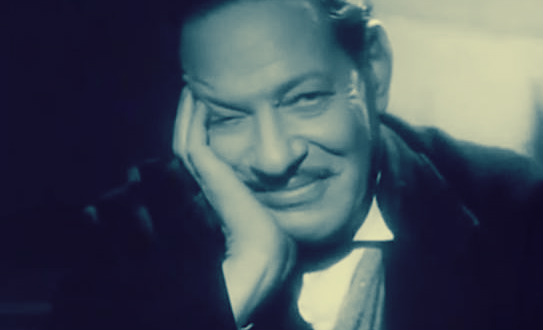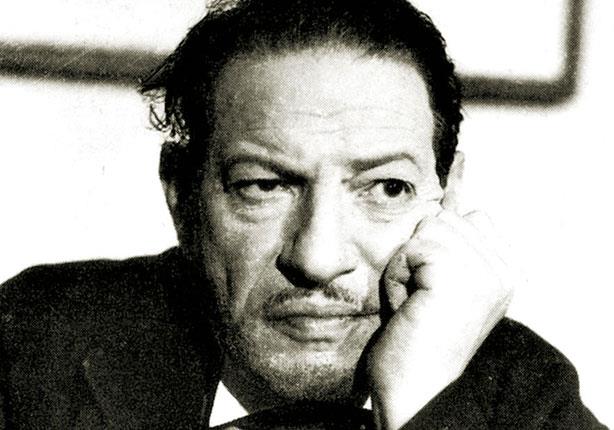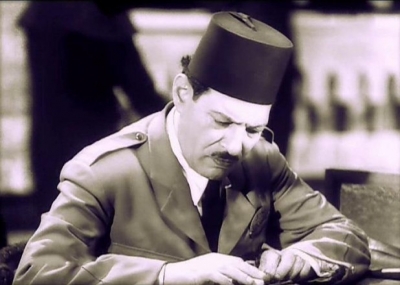
When Naguib el-Rihani was fired from the Sugar Company, he joined the George Abyad theater group, where he played small roles. Then he left the group and formed his own with Mounira el-Mahdia, Rose al-Youssef, Aziz Eid and Amin Atallah.

In 1916, the group was dissolved and Rihani was out of a job and penniless again. But one day when he was sitting in a cafe, he saw a man dressed in a fine suit and holding a gold handle cane. He sat next to him, took out of his pocket a silver pack of cigarettes and offered him one. It was Stephan Rosti, his comrade in misery.
“Where did you get all this from,” Rihani asked him. “Did you rob a bank?”
Rosti told him that he found a job in a cabaret that paid him sixty piasters a day.
“Good gracious,” Rihani said. “This is what I used to make in a month. What kind of job is it?”
“I dance silhouette from behind a screen,” Rosti told him.
“Do they have a job for me? I will take anything. Eight piastres a day would do,” he asked him.
“Meet me tonight at the cabaret,” Rosti told him.

Stephan Rosti
Rosti introduced Rihani to the proprietor, an Italian named Rosati. “He is a great actor,” Rosti told him.
“I do not want great actors,” Rosati said. “I need someone to dance with you behind the screen.”
“Actually, I am not a great actor at all,” Rihani said. “I am quite ordinary.”
“Fine,” said Rosati. “I will pay you 40 piastres.”
Rihani looked at Rosti in disbelief.
Later, Rihani and Rosti left the cabaret and performed one-act plays in French, but this did not go very well either.

One night, as Rihani was lying in bed, he came up with an idea for a play. It was about KeshKesh Beh, a man who came to the city from the countryside loaded with money, but gets conned and goes back to his village, swearing not to go to the city again.
When Rosati went bankrupt and was about to close down the cabaret, Rihani asked him to perform the play there. “It may save the place,” he told him.
It was performed in small comic sketches of 20 minutes each.

Rihani finished the performance and went home right after. He did not wait to see the reaction of the audience.
The next day Rosati rushed to him as he entered the place. Rihani thought this was the end. “Congratulations,” he told him. “You are indeed a great actor. I will pay you 60 piastres a day.”
Rihani wrote more sketches. It was such a success that Rosati started selling tickets to fill the place and make money out of meals and drinks. He gave Rihani 5 percent of the ticket sales.

One day as Rihani was sitting in a cafe, he heard two gentlemen sitting at a table next to him talking about how hilarious the sketch was that they watched the other day at the cabaret.

Rihani had paid the substitution fees for exemption from military service. But a neighbor of his who envyed him reported to the authorities that he was escaping from the draft.
When he went to prove that he paid the fees, they asked him to recite a surah from the Quran, for at that time you were exempted if you knew the Quran by heart.
“But I am a Christian,” he told them, explaining that he is exempted because he paid the fees, not because he could recite the Quran by heart.
They found out they had mixed him up with another man.

Edited translation from Al-Masry Al-Youm
